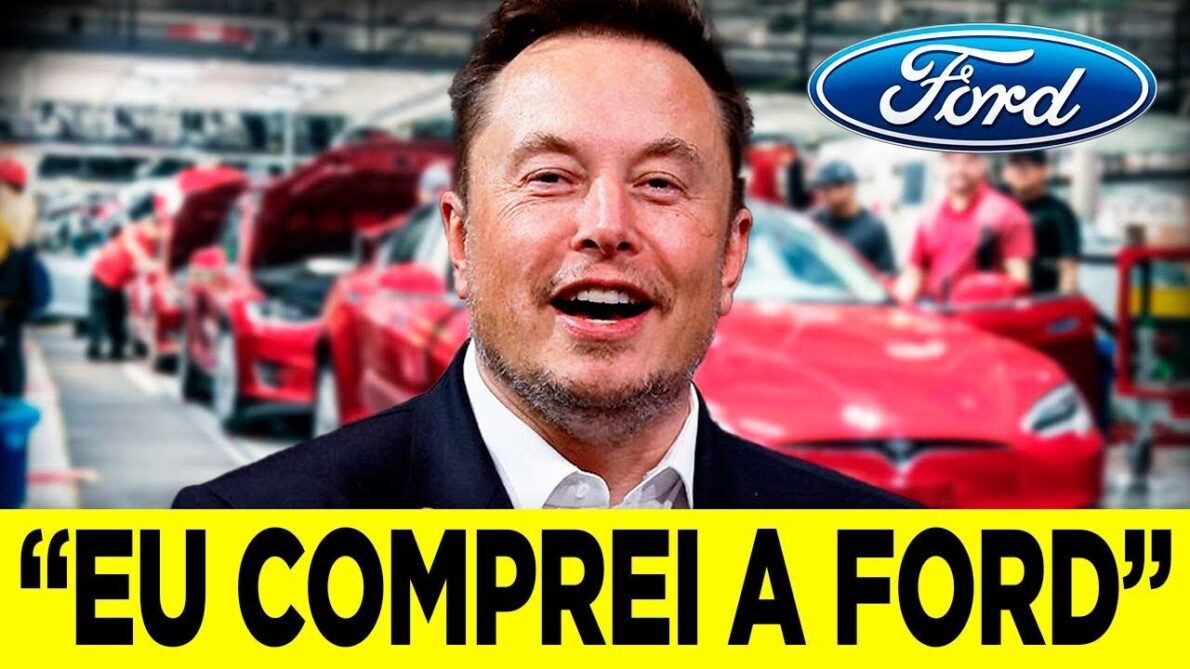Did Elon Musk Buy Ford?
Norman Han
In mid-2023, a seemingly innocuous YouTube video titled “Elon Musk OFFICIALLY Bought Ford | HUGE NEWS!” set the stage for what would become a viral falsehood. The video’s sensational claim hinted at a forthcoming merger, falsely suggesting that Tesla and Ford were on the brink of revolutionizing the automotive world together. Several similar videos and numerous social media posts further fueled the speculation, captivating audiences eager for groundbreaking news. However, despite the pervasive nature of these rumors, no verifiable information supported the acquisition claim. Instead, it highlighted the enduring appeal and magnetism of Musk’s actions and his complex relationship with the automotive industry, which seemed ripe for speculation and conjecture.
Whispers of Elon Musk purchasing Ford Motor Company have echoed through the corridors of social media, luring curious minds into a web of intrigue. It was a tale spun from speculation and rapidly snowballed into a widespread belief. This captivating narrative painted a picture of Musk, the enigmatic mogul behind Tesla and SpaceX, adding another feather to his cap by acquiring the iconic American automaker, Ford. Yet, as enticing as this storyline may be, it serves as a mere reflection of our fascination with Musk’s potential to transform industries with his audacious ventures.
Through the breadth of rampant digital storytelling, the narrative surrounding Musk’s alleged acquisition of Ford accentuates an undeniable truth timelines of responsibility and adherence to context lurk as vital catalysts driving accurate, reliable business communications.
The essence of verified information, threading stories within journalistic integrity, remains non-negotiable balancing sensationalism and stoic perseverance within discernible roots of truth. Understanding relevance proximate to reputable structure amplifies sentiments echoing sustainable cognitive awareness.
- Core Areas of Transparency in Business News:Rigorous Investigative Standards: Holding the candle of truth within dynamic consumption.
- Statistics and Data Differentiation: Discerning factual underpinnings among speculative allure.
- Consumer Literacy Emphasis: Cultivating consumption’s authenticity in data-heavy domains.
To thrive within this age necessitates prioritizing wherein innovation, caution, and digital literacy converge the culture whispered within Musk-Ford rumblings guides transformative braking from exuberant allure toward authentic media channels proximal to the tangible essence of foresight.
These insights construct pivotal frameworks for tangible outcomes ideacies converging on equilibrium bridging dialogue, resonance, and internet-engendered ethereal narratives to discover purpose through relational diffusion and conscientious cognizance.

Key Takeaways
- Reliable Reports: Musk’s supposed acquisition of Ford is a rumor; no credible confirmation exists.
- Partnership, Not Merger: Tesla and Ford’s notable electric vehicle charging network partnership delineates collaborative strategy.
- Social Media Impact: Prominent role in rumor spread, emphasizing the need for reading with discernment in digital ages.
- Innovation Over Acquisition: Prioritizing ecosystem enhancements through strategic coalgignments rather than aggressive consolidation.
- Real Partnerships, True Impacts: Grounding effect on electricity innovation-conscious goals, transcending misinformation hype.
FAQs
- Did Elon Musk buy Ford Motor Company?No, Elon Musk did not acquire Ford. It’s a rumor with no credible basis.
- What is the reason behind the rumors of Musk buying Ford?Rumors proliferated due to speculative and misleading social media posts and videos.
- Has there been any official statement from Elon Musk or Ford regarding the acquisition?Neither Elon Musk nor Ford has made any official declarations supporting the rumor.
- What kind of partnership exists between Tesla and Ford?Tesla and Ford have partnered to allow Ford’s EVs to access Tesla’s Supercharger network.
- How does social media contribute to spreading inaccurate information?Social media platforms expedite the spread of misinformation through viral content and sensationalism that often lacks verification.
